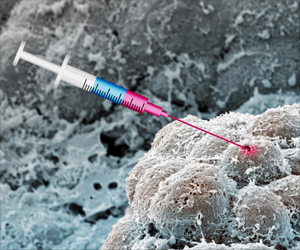Defects in autophagy of mitochondria have been implicated in a number of neurological disorders such as autism, Parkinson's disease and Alzheimer's disease.

‘Developing treatments that counter the defects in autophagy of mitochondria could be a therapeutic target for TSC, and may also have implications for other neurological diseases that involve mitochondrial dysfunction.’





Mitochondria, the organelles responsible for cellular energy production and metabolism, constantly get recycled. Through a process known as autophagy ("self-eating"), cells literally digest their damaged or aging mitochondria, clearing the way for healthy replacements.The new study, led by Mustafa Sahin, MD, PhD, and co-first authors Darius Ebrahimi-Fakhari, MD, PhD, a resident at Boston Children's Hospital, and medical student Afshin Saffari, in Boston Children's F.M. Kirby Neurobiology Center ,is published online October 18 by Cell Reports.
"We decided to use tuberous sclerosis, a genetically defined disorder that has a high incidence of autism, as a model to understand the role of mitochondrial dynamics," says Sahin.
Sahin, Ebrahimi-Fakhari and colleagues studied both rat neurons and patient-derived neurons affected by TSC and used live-cell imaging to examine the distribution and dynamics of mitochondria.
They found that the TSC neurons as a whole had more mitochondria, and in particular more fragmented and dysfunctional mitochondria. It shows that autophagy is defective in TSC.
Advertisement
When treated, the dysfunctional neurons were able to clear damaged mitochondria and replenish healthy mitochondria, restoring a normal turnover.The mitochondria were replenished at presynaptic sites, where their presence is most critical.
Advertisement
Source-Medindia











